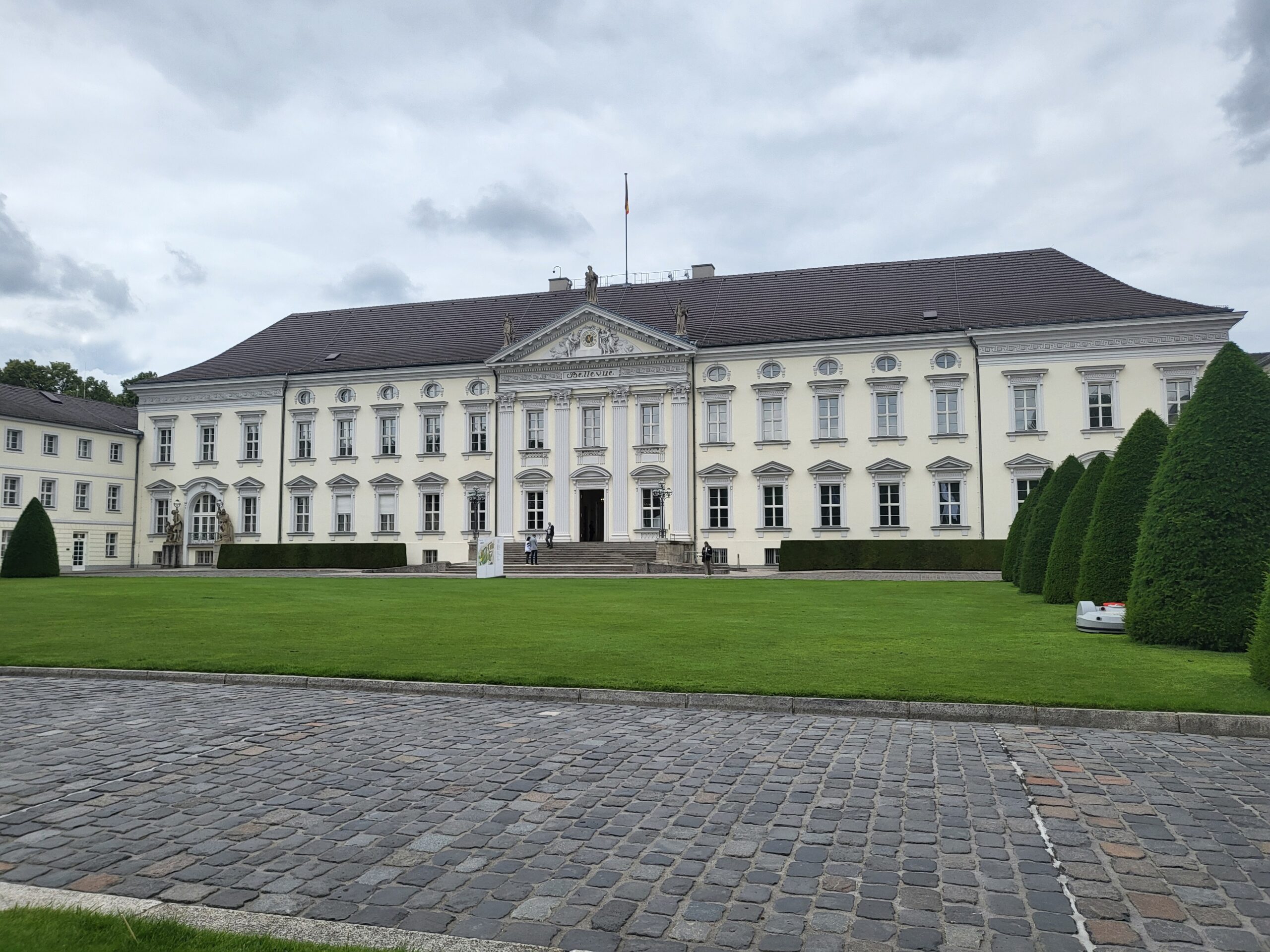Environment Week in Berlin – with the LIB!
 Park of Bellevue Palace, Berlin: this is where the Week of the Environment takes place. © LIB, K. Waskow
Park of Bellevue Palace, Berlin: this is where the Week of the Environment takes place. © LIB, K. Waskow
It’s getting really green in the park of Berlin’s Bellevue Palace: Federal President Frank-Walter Steinmeier and the German Federal Environmental Foundation (DBU) are inviting visitors to the palace park for Environment Week. Predominant theme this year: climate neutrality. To ensure that biodiversity – inevitably linked to climate – is not neglected, the LIB will be at the start. We provide exciting insights into our research projects – not just for experts, but for the whole family.
Already participating in 2016 with our “GBOL – German Barcode of Life” and this year involved at several stalls: the Environment Week takes place for the seventh time – on June 4 and 5 – with around 190 exhibitors presenting their research and innovations on the topic of climate neutrality. But the climate and biodiversity crises are inextricably linked. In order to protect our environment, we need to think and act together – hand in hand with politics, business, society and science.
Together with nine other Leibniz institutes, at stall #105 – Leibniz Research Network Biodiversity – the 10MustKnows, just published in March, were the main focus – ten rules of thumb that everyone should know and that can help us to ensure the preservation of biodiversity and thus also mitigate climate change. But first we need to find out what species our planet has to offer: CaBOL – Caucasus Barcode of Life is another project that can be discovered Wednesday morning. The Caucasus offers a huge diversity of species, which our researchers are gradually uncovering. We also give insights on the EU project BioMonitor4CAP that involves modern biodiversity monitoring measures for agriculture. One important aspect is the special protection of pollinators. Pollinators are also addressed by our recently launched digital Escape game “Project Pollination”: interested people can try it directly at stall #105. If you can’t make it to Berlin, you can get started easily online: https://projectpollination-lib.de/
A little further – stall #100 – we will shed light on the unknown biodiversity in Germany: with GBOL III: Dark Taxa. We can meanwhile quickly and reliably identify species using a short section of our DNA (DNA barcode). Since 2011, GBOL has been working successfully on creating a reference database for all animals, plants and fungi found in Germany. An immense number of insect species, especially small ones, are still unknown and undiscovered – especially mosquitoes, flies and parasitoid wasps, including species that develop on or in other insects. In Germany alone we estimate the number to be at least 20,000 species; they make up a large part of the local wildlife. Why is this so important for us, our environment, our climate and our resources? We are drawing scientific and social attention to the largest – and still unknown – proportion of insects in Germany – as a basis for future studies on biodiversity, biodiversity monitoring and nature conservation.
At stall #46 we are devoting ourselves to species and groups of organisms and, last but not least, to human species experts themselves: they are also threatened with extinction. BANU, FörTax and KennArt bring species knowledge back to the center of our society: With Binos we take a close look at even the smallest details of insects and plants. Learn to recognize and identify species yourself – under expert guidance, including a mini certificate. Even Germany’s Federal President Steinmeier was able to brush up on his knowledge here.
We are looking forward to many many visitors!
Further Impressions:
Frank-Walter Steinmeier opens the Week of the Environment: https://youtu.be/j9Q491QbSAs
Our projects on YouTube:
CaBOL, BioMonitor4CAP, our research at LIB, and the trailer for the escape game “Project Pollination”





